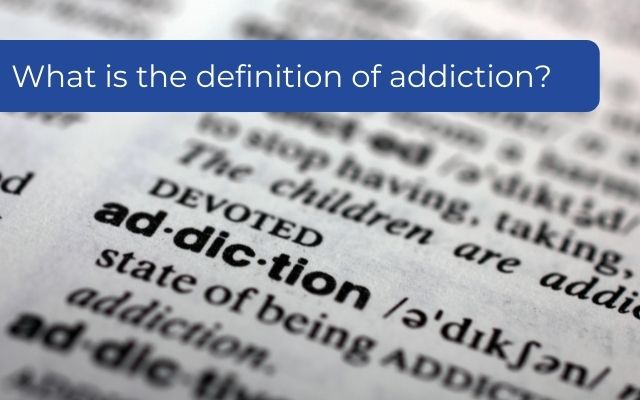
High functioning does not negate addiction
If you are functioning well at work and home, can you still meet the medical criteria for addiction?
What is the definition of addiction or alcoholism?
 Addiction (including alcoholism) is a complex mental disorder and it is defined in a number of ways.
Addiction (including alcoholism) is a complex mental disorder and it is defined in a number of ways.
The American Society of Addiction Medicine defines addiction as a “treatable, chronic medical disease involving complex interactions among brain circuits, genetics, the environment, and an individual’s life experiences”.
The United States’ National Institute on Drug Abuse (NIDA) adds that addiction is “a chronic, relapsing disorder characterized by compulsive drug seeking, continued use despite harmful consequences, and long-lasting changes in the brain”.
According to NIDA, addiction is considered to be a complex brain disorder and mental illness that is caused by repeated misuse of substances.
Addicted individuals may have “distorted” thinking and behaviours notes the American Psychiatric Association on its website. “Changes in the brain’s structure and function are what cause people to have intense cravings, changes in personality, abnormal movements, and other behaviors,” explains the Association. “Brain imaging studies show changes in the areas of the brain that relate to judgment, decision making, learning, memory, and behavioural control.”
Benefit of early intervention
Most definitions of addiction describe the continued use of substances despite the ‘harmful consequences’ that this use causes. For high-functioning these consequences aren’t so severe – yet.
But addiction is a progressive illness and functionality will eventually slip away over time. It’s important for high-functioning addicts to identify they have a problem before the consequences become severe, tragic or even fatal.
Severe consequences include bankruptcy, involvement in crime, life-long legal or health problems and irreparably broken relationships. Any person with an addiction problem would benefit from avoiding such catastrophes.
Some evidence also shows that started treatment earlier in a person’s addiction can make the process of recovery easier and relapse less likely.
The idea that an addict has to reach ‘rock-bottom’ can also have unintended consequences. Rock-bottom is the level or crisis one encounters that is the last straw or catalyst for someone entering recovery, quitting using, getting help and changing their lives. Many people think of physical, financial and social ruin as rock-bottom. However emotional and spiritual bankruptcy can be a rock-bottom of a different nature.
While high-functioning addicts’ lives haven’t completely fallen apart, they may be experiencing emotional turmoil. Their loss might not be external but internal: The loss of authentic joy, hope or self-respect.
I was fortunate to be a patient at Changes for 90 days. I did treatment at both the primary and secondary facility. It really changed my life. I owe so much gratitude to my counsellors and the staff.
Dropped our loved one in the safe hands of Changes Northcliff 2 years ago. We are forever grateful for the transformation we have experienced. The facility is receptive and staff are professional and compassionate.
I'm proud of the family we are at Changes and the work we do because it comes from our heart and care. Due to that care, we change lives. Changes Treatment Centre is where we make change without fear.
If Amy W wanted to go to Rehab then it would have been Changes! I had no idea what rehabilitation and treatment was but when I arrived, I didn't realise how broken and in need of repair I was.
My son was struggling deeply, and we were desperate. Changes made a real difference. Their care and dedication turned things around, and I feel like I’ve got my son back.
This less tangible loss is as good a reason as any outward catastrophe to look for help and begin the rewarding process of recovery.
Stereotypes and stigma are barriers to high-functioning addicts. They prevent these individuals from admitting they have a problem and from getting help. Severe consequences of substance abuse can be prevented if functionality is placed before above all else when defining addiction.
Getting help earlier saves many people from some of the terrible consequences, disruptions to life and intense pain addiction causes. High functionality does not mean you are not an addict: You are simply an addict who hasn’t lost everything – yet. Everybody’s rock bottom is different, but any addict would prefer not to have lost everything before they got help and began their journey of recovery.
Addiction is a progressive illness and, over time, addicts and alcoholics lose more and more of their functionality. However, many people living with addiction are indistinguishable from the rest of the population. They may still be gainfully employed, live with their loved ones and own all of their worldly possessions. Their children might be provided for and go to the best schools or they might have an active social life. Addicts exist on a wide spectrum of functionality and many fit the classification of ‘high-functioning’ addicts or alcoholics.
High-functioning addicts are still able to manage most or all of their day-to-day activities and responsibilities. These chemically dependent persons may be extremely successful in their careers and are often incredibly skilled at hiding the true extent of their drug use or drinking, even from their closest loved ones – for a time, at least.
The stereotypical idea of what an addict or alcoholic looks like is not only wrong, it is damaging. Many people with addiction problems do not seek help or consider going to treatment because they cannot reconcile the stereotypical definition of addiction with themselves and their life circumstances: They are not “like that” or they are not “that bad”.
This often has tragic consequences: People often don’t get help until it’s too late.
There is always help and there is always hope and help available. Changes Rehab Johannesburg is here to guide and support you through each step.
Definition of addiction for high functioning adults who keep jobs and families yet still meet clinical criteria, uncover hidden signs and access discreet help. Changes team counsellors are here to help you.Definition Of Addiction For High Functioning Adults










